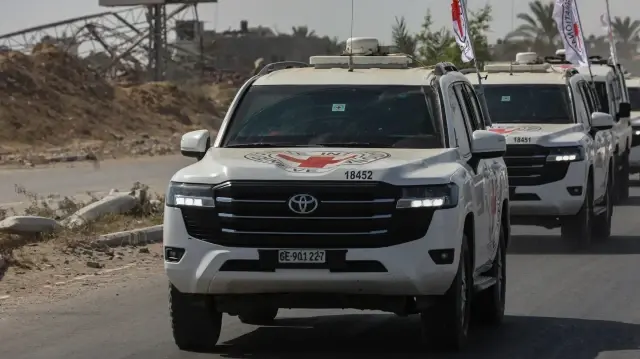Hamas says returning all Israeli captives' bodies will require time

Hamas has reaffirmed its commitment to the ceasefire agreement while stating that recovering all remaining Israeli hostage bodies will require additional time due to technical challenges. The group blames Israel for blocking essential equipment needed for recovery operations beneath destroyed structures.
Hamas has confirmed its continued commitment to implementing the ceasefire arrangement with Israel while indicating that recovering all remaining deceased Israeli captives will necessitate additional time due to substantial technical challenges. The Palestinian group issued a Thursday statement emphasizing its dedication to fulfilling agreement provisions, including transferring all remaining hostage remains, though acknowledging the recovery process "will take some time" given current operational constraints.
Recovery challenges and equipment shortages
The organization explained that recovering the outstanding bodies presents significant difficulties as "some were buried in tunnels destroyed by the occupation, while others remain under the rubble of buildings bombed and demolished." Hamas emphasized its requirement for heavy equipment and specialized devices to clear debris, noting these resources remain "currently unavailable due to the occupation's ban on their entry" into Gaza despite the ongoing ceasefire arrangement.
Implementation accusations and prisoner exchange
Hamas attributed recovery delays directly to Israeli government restrictions, accusing authorities of "obstructing and preventing the necessary means for recovery" while criticizing Prime Minister Benjamin Netanyahu for "stalling and failing to meet his commitments." The statements reference the initial ceasefire phase implemented October 10 under US mediation, which has already facilitated Hamas's release of 20 living Israeli captives and 10 deceased hostages from the 28 confirmed fatalities.
Humanitarian concerns and political context
The group further condemned what it characterized as Israeli attempts to leverage humanitarian considerations for political advantage, specifically referencing threats regarding Rafah crossing reopening and aid restrictions. The prisoner exchange component has thus far resulted in Israel releasing 250 Palestinians serving life sentences alongside 1,718 detainees captured in Gaza after October 8, 2023, though over 10,000 Palestinian prisoners remain incarcerated in Israeli facilities.
Reklam yükleniyor...
Reklam yükleniyor...







Comments you share on our site are a valuable resource for other users. Please be respectful of different opinions and other users. Avoid using rude, aggressive, derogatory, or discriminatory language.